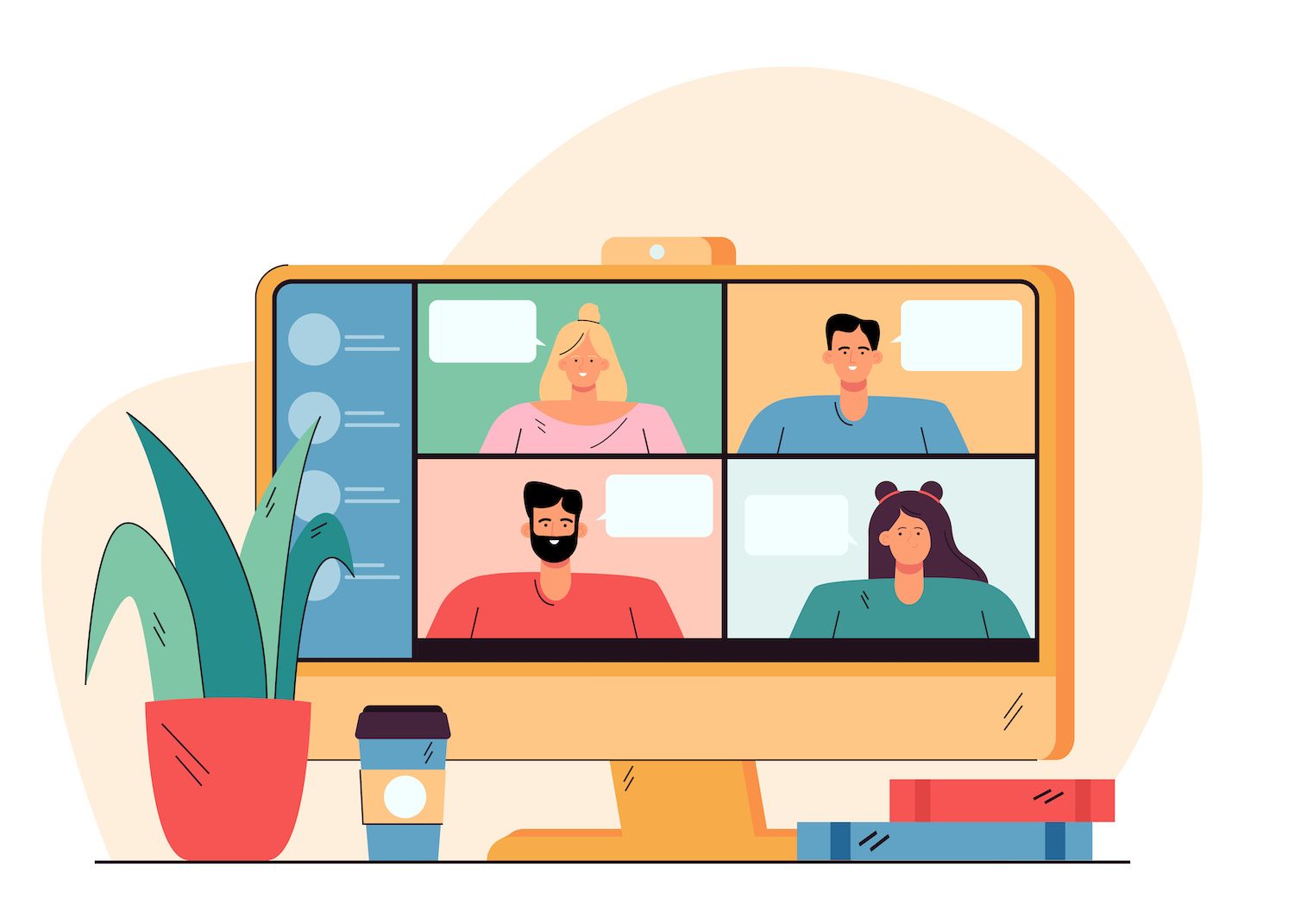Terms

"I was raised and born within Southern Vermont," starts Max Mackson of Maximilian Mackson, LLC. I was homeschooled up to high school. This allowed me to work on my computer. I learned HTML, CSS, and JavaScript as the primary web-based languages I also continued to play around on other projects."
When he was a teenager, Max went into a performance program. "I learnt to behave professionally. We had a demanding director and I'm grateful we had him since I learned from him how to keep on schedule and be prepared," he adds. Max's initial IT job experience was at this point. "Between my junior and sophomore year of high school I was employed by a group situated in the town. I would be there every week to update their website. It was God terrible! The company was using an obscure third-party system that needed a full half hour to accomplish tasks which would be completed using WordPress. "The same task WordPress would have accomplished within two minutes." He explains.
Conversations with strangers in person as they worked on technology certainly assisted He continues. "I'm addicted to personal connections. I get a lot worth out of friendships. In the summer at the country club all was running at full speed. Therefore, if the printer at the kitchen was not working, I had to get into the kitchen. It was hot and crowded, and everybody was running all around me. It was a 'zone and in the moment!"
Max enjoyed seeing first-hand what the impact of his tasks he was working on in battling the difficult relationship we have with technology at times. "When I worked with others and I'd say to them "Okay, I've just put an update on this machine'. I'd try to determine how beneficial it was to them or when they seemed confused. It was my job to discover all the perspectives, and see how people respond to technology. Most IT people will say, "Oh, this is the current situation; this is the latest version", which has been frustrating for me. I am a fan of working with others."
Max recognized that being skilled in the field of technology can make a difference to peoples live better lives. In his time at the country club when he was a teenager His resentment towards printers beganto surface "They don't seem to perform the way you want they to!" he smiles. The majority all of his time at work consisted of fixing machinery; working with them made him more aware of the system's architecture "I ended up having to overhaul each of their systems throughout many years. I am still working for them now," he adds.
He's fumbling about by himself
In order to receive formal training, Max went to Champlain College located in the northern part of Vermont however, he learned much more than what the school curriculum offers. "I was one of twelve information technology majors, which is really funny, because as I was in college it was agreed by the school that they would be ending that particularization! We were brought to an area, and they told us"Hey guys, so you'll be able to complete your education. We'll however not be able to offer your major after this year""
Max was able to get into the audio-visual field because of his experience in the theatre. "That required more technology repair since every class relied on a computer or projector and a projection screen" the actor continues. "When it went wrong, we would walk through these classrooms full of many individuals, and they'd be staring at us. We would sit at a table and change the projector bulb!"
"I went to college for only two years; I left because I felt it was hard to keep up with. The internet has been evolving with such speed that when you finish with a degree and it's outdated in real life. Teachers who need to be aware and impart their knowledge onto students. "It takes a while," Max adds.
Naturally, the speed of technological advancement hasn't stopped even a bit - rather, it's increased as well as the speed and purpose of higher education eventually led Max to create the company which he controls. Another reason for why Max left was that his vision for his prospects was not the same as that of his university: "They liked to say that they could offer 99 percent of their students jobs straight from college. It's amazing, however, they go hardcore on making certain that every student is accepted into the corporate environment. I enjoy working with others, but not as an outcome of it; it did not attract me."
Then Max left alone to search to find his first client. Max had just completed an online class and the instructor running the event had requested feedback. Max recalls: "I sent one in, just thinking I'd practice my writing skills but in closing, I put "PS-If my talents will ever prove useful to you, please let me know?' And he said 'Well, what can you be doing?'"
Max went through the site and prepared an outline of the changes: "No BS, just simple and clear" and Max received a simple reply: 'Text me' and the number. "That was the way I got the job I wanted. And to this day he's one of my best customers!" Max smiles.
Projects and Services
"You have all these various components of software that run your companies, but they're not communicating with each other. I'm the only one who knows the software is communicating perfectly," Max says. He says this makes an efficient and more effective single system that has the ability increase business productivity as well as reduce time and energy. "I call myself an integrator and systems engineer. Most people, including my parents, simply refer to me as the IT person!" He laughs.
Max Explains how an average client's tech stack may consist of more than 100 pieces of software. All as blocks. "You need to link everything together in order they connect with each other. My first project was with a two clients on Web design. I began to focus on integration in 20th April, 2021. One of my customers had a plan to launch the community as a pay-per-members only."
Max was working with this client, an influencer in the field of health and also an evangelist for a few months and it was going well. He had not had much experience with memberships, however it was clear to him the issues that could arise. "I ended up researching a bunch of software that allow membership. There is a way for me to go about researching where I look at diverse lists of the best software. I'll correlate them."
Max selects the right software to provide an optimal user experience in both an admin as well from a perspective of the user, for the purpose of reducing customer support time in the long run. The simplicity of the interface is vital. "I have the ability to be a part of a complex context, however I understand that there comes a level where it's no longer useful to the average person. Customers want to purchase some thing, and they'd want to access it. It's quite common: when someone would sign into the website, I'd notice the look in their eyes. I'd start explaining it but their eyes were glazed over!"
Integration styles and the future
"Integrations are often a bit complex," Max muses. "They come in different formats and also in different depths. Therefore, for a native connection like Mailchimp you just need to click a few buttons and the integration is approved and then you're set. Low-code and no-code integrations such as Zapier's Zaps; and totally custom ground-up integrations that you design everything from the ground up."
"Generally I'm within the zero-to-low-code area, as it is proven to be effective to my customers. But, in the case of one particular integration, a client requested me to go deep through it. They needed to include the features that a native integration has but they preferred to accomplish this through Zapier. I had to go through about a dozen Zaps to get the whole system wired and create a natural look, however I was required to develop some custom code."
The aspect that was so fascinating about this particular project was the sheer number of participants that took part. "The first day we launched it, we took on the task of completing 50,000 participants, which is amazing! The system had to be redesigned multiple times in order to make it worthy of the expense. It was eventually able to reduce the number of jobs to less than 5000 jobs each day. The number was very high."
The author adds: "That was the first experience I've had working on a project of this size that involved Zapier. I've worked on a variety of projects over time with various customers, with some that focused on design, and other projects that were more technical however this project was the most notable."
The larger scope of innovation is driving Max's future. Max states that: "Longer term, I want to develop software that can help companies." He says his thoughts on software tend to be because it's an essential part of his career and that so much software has become more difficult to use in the course of time. "It becomes bloated and slow it's not as user-friendly. It's constantly pushing out UI upgrades that increase the complexity. At present, there are a lot of users that are expecting software to not work!"
He says he's trying to give a better, simpler, user-friendly experience for users. "It's very early in the phase of development, but I've got some intriguing thoughts. It's probably around six months or more since I prefer to do my work on my own most of the time. I'm not a fan of working for an agency. They hand the work over to an unidentified developer who is then locked up inside an unlocked cupboard! I'm not one for such a situation and generally prefer to be working as a team with a single-person approach."
Max is a regular contributor to his blog, sharing the latest ideas with--and gives preferential treatment to--subscribers from his mailing list (which is affectionately referred to by the name of "#MilianFam"). In addition, as an exclusive benefit to new subscribers coming from his list, he's created a special bonus training, and, up to the date of the article's writing, he has never provided elsewhere for the cost of.
Article was first seen on here
